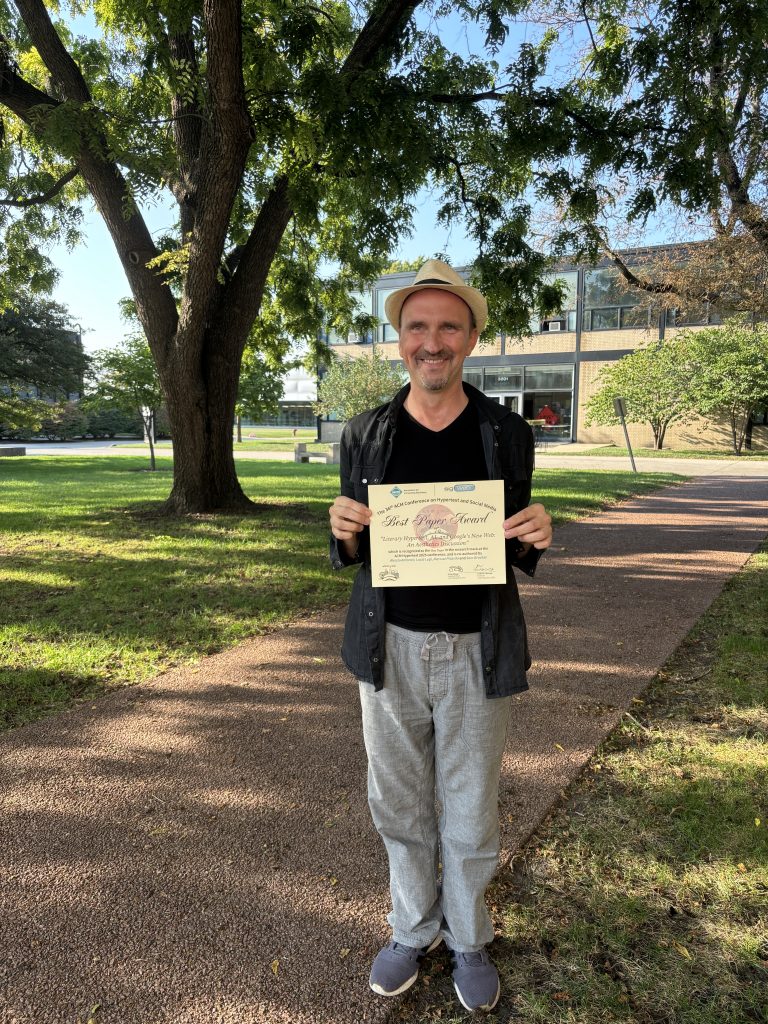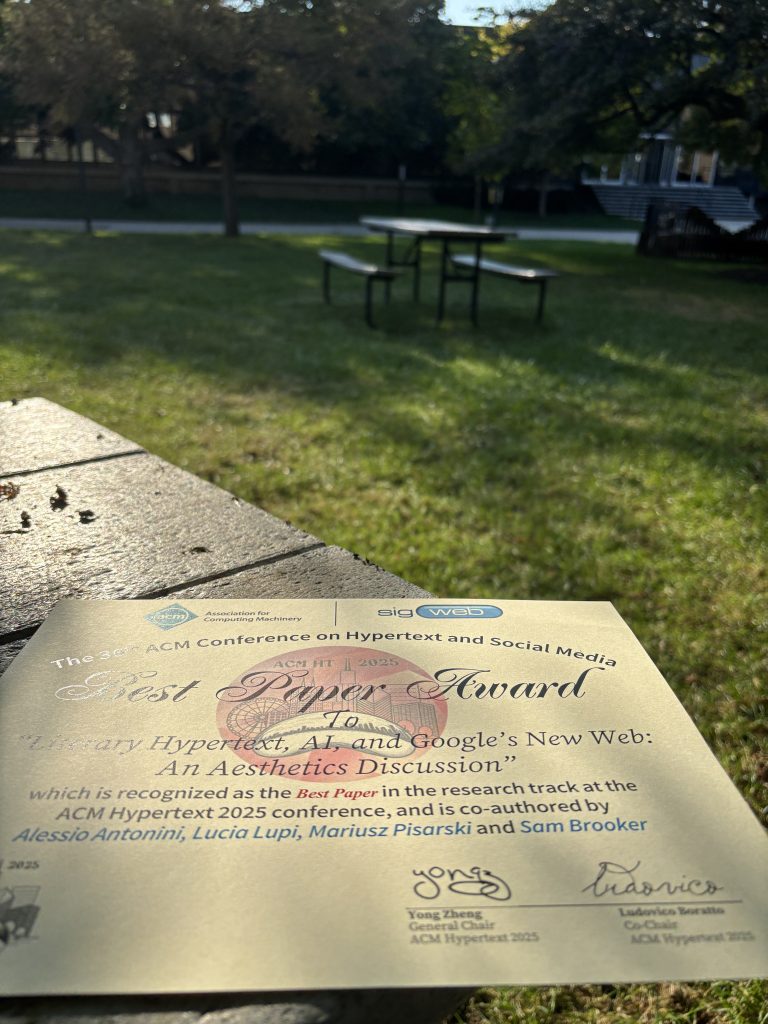KMi is delighted to announce that the paper “Literary Hypertext, AI and Google’s New Web: an Aesthetic Discussion”, by Alessio Antonini, Lucia Lupi, Mariusz Pisarski and Sam Brooker, received the Best Paper Award at this year’s ACM Hypertext conference in Chicago.
The study asks what happens to the web when AI becomes both author and gatekeeper. We probe how Gemini (Google’s Large-Language Model) judges web content “usefulness” and target audience under Google’s newest content guidelines, released earlier this year to stem the tide of generic, machine-made text.

Mariusz, who gave the presentation, holding the Best Paper Award.
We used a case study on non-linear narrative (traditionally the hardest test for any reader and web crawler alike) that, on the one hand, seems to address the call for web authors to provide bespoke, unique experiences against the generalist AI-generated content. On the other hand, this literary format delivers unique experiences through literary stratagems and counterintuitive mechanisms that violate the expectations for usability and may fall under the category of deceitful content. Through two case studies, we uncovered the role of social commentary around web content and the current limitations of LLMs in assessing and, therefore, implementing Google’s web of the future, with potential detrimental consequences for literature and any other forms of quality authorship that are not easily remediated by the AI.

The award is shared with:
- Lucia Lupi, former KMi PhD visiting student and now researcher at the intersection of digital literature and HCI;
- Dr Mariusz Pisarski (Collegium Civitas, Warsaw), who gave a KMi seminar on 1 April and delivered the conference presentation; and
- Sam Brooker, Course Leader for Media Communications at University of the Arts London.
Many thanks to the organisers and reviewers for a lively conference, and to everyone who joined the discussion in Chicago.
Related links:

